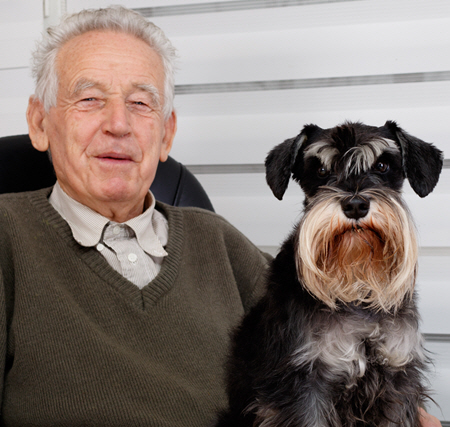 Remember that old joke about the guy who says, “It’s easy to quit smoking. I’ve done it hundreds of times!”
Remember that old joke about the guy who says, “It’s easy to quit smoking. I’ve done it hundreds of times!”
Well, the same can be said about other addictions. Stopping an addiction isn’t the most challenging part – it’s staying stopped that takes so much commitment and hard work. And part of managing addiction is surrounding yourself with others who can provide support, encouragement, and shared experience.
You’ve worked so hard to overcome your addiction. You never thought it would be possible to live in recovery. Life is so much better now. Your relationships have improved, you’re doing better at work, and you feel healthy for the first time in a long time.
And yet… there are those days when it seems like you are still alone. Those days when staying in recovery is a challenge.
You’ve worked with an individual therapist who has helped you address denial and gain insight around your emotions. Maybe you’ve spent some time in rehab. You’ve developed healthy coping skills to manage your addiction. You’ve worked to repair your relationships. Your personal and professional life continues to improve. Individual therapy has been helpful – life-changing even – but you need something more… something different… something to keep your focus on recovery.
Group therapy provides a different experience than you receive in individual therapy.
On the surface, it brings together a group of people who are struggling with a similar problem – alcoholism, substance abuse, overeating, even chronic anxiety.
The members of your group have all walked in your shoes. They provide support, understanding, and compassion. They may challenge you at times, call you out on stuff, and hold you accountable.
In a group, you share your experiences, work on relationships in real-time, learn to appreciate differences in others, and forge connections. Your group understands you and your struggles in a way that others do not.
 Group therapy provides benefits that individual therapy may not.
Group therapy provides benefits that individual therapy may not.
When George* joined our sobriety group, he did so reluctantly. He’d lost his job, his home, and he’d been forced to live with his sister and her family. He’d been struggling with alcohol for years and didn’t see much value in his life. His older sister had laid down the law – “get help or get out,” she told him.
George was so angry when he first joined. He barely spoke, and when he did, it was like talking to a grumpy old man. But he kept coming to the group. And, for the most part, he managed to stay sober. After several weeks George began to talk. He asked one of the younger members how much she had paid for a pair of sparkly tennis shoes and offered her twice that amount if she’d throw them away. She declined, but after that, George found his place in the group.
Most group members assimilate more quickly than George, but for him, the group became like a family. Having facilitated hundreds of group therapy sessions, I’ve found that clients are surprised by how rewarding the group experience can be. Members learn to trust one another and create an atmosphere of safety and acceptance. Groups function as both a support system and a source of feedback. Group members hold one another accountable but do so from a place of having lived the same experience.
Being part of a group also provides a different perspective. Individual members with diverse backgrounds and personalities engage in problem-solving and often arrive at new ideas for improving a challenging situation. You will have the opportunity to see how others face challenges similar to yours, as well as the strategies they use to navigate change. This sharing can be helpful and encouraging. It was to George.
Meeting regularly and talking with group members helped George realize that he was not the only person to feel this way or struggle with this particular challenge. It was comforting when others shared their experiences, and he recognized his own pain and circumstances in their stories. In supporting them, he was able to find comfort in hearing what his group members were going through and realized he was not alone.
Group therapy can be an ideal choice for maintaining positive change in your life of recovery. And maybe like George, you’ll make some new friends for keeps.
Confidentiality
At the start of each group, all members and the therapist pledge confidentiality to each other and the group. Confidentiality is an essential part of the ground rules for group therapy. However, only the therapist is bound by ethics and law to maintain each client’s confidentiality. Therefore, it is vital to use common sense when sharing personal details. There is no guarantee of privacy when sharing with others.
Having said that, you are not the only one divulging sensitive information.
We strive to use open, honest, and direct communication and work on this skill as part of our group process. Group members begin as strangers but quickly evolve as a trusted and valuable network of support.
What it looks like…
Group therapy involves a group of 5 to 12 patients. Small groups may offer more time to focus on each individual, but larger groups provide greater diversity and more perspectives.
Typically, groups meet for an hour or two each week. Some people attend individual therapy in addition to groups, while others participate in groups only.
My groups are designed to target a specific problem, such as chronic anxiety, alcoholism, substance abuse, mindless eating, etc. While group members are a valuable source of support, formal group therapy sessions offer benefits beyond informal self-help and support groups. You will learn specific skills and evidence-based strategies for managing specific problems.
Open and Closed Groups
An open group is one that is ongoing, and a new member can join at any time, assuming space is available. Open groups can be beneficial because they already have momentum and provide support, feedback, and accountability right off the bat.
One of the challenges to joining an open group is that “I’m the new kid” feeling. Yeah, that never really goes away, does it? You will find, however, that this adjustment period is offset by the level of safety created. Everyone in the group was new once and remembers what that felt like. Joining a new group may be stepping outside your comfort zone, but that is where growth and change begins.
A closed group is one that starts with a set group of members and runs for a specified time. Often these groups are run in conjunction with a structured program. For example, the Anxiety Group and the Mindless Eating Group both follow a structured format that includes weekly app-based homework. The Group members develop cohesiveness quickly as they work side by side through their challenges.
 Group therapy may (or may not) be enough.
Group therapy may (or may not) be enough.
It depends on where you are in the process and what level of change you are seeking.
Some clients find it’s helpful to participate in both individual therapy and group therapy but, over time, may switch to just one or the other.
Sometimes individuals who have been participating in individual therapy and feel as though they are stalled can benefit from switching to group therapy.
Some clients only participate in group therapy.
From a financial standpoint, group therapy can be a very cost-effective form of therapy.
If you’d like to learn more about Group Therapy options…
… and whether this would be a good fit for you, please call me, and we can chat.
The idea of group therapy can be frightening or intimidating to some, but it may also be just what you need. I offer a free 20-minute phone consultation during which we can discuss the pros and cons and determine if being part of a group may work for you.
Call me today, and I’ll be pleased to answer any questions you may have: (601) 498-8263.
*Names changed to preserve client confidentiality.

